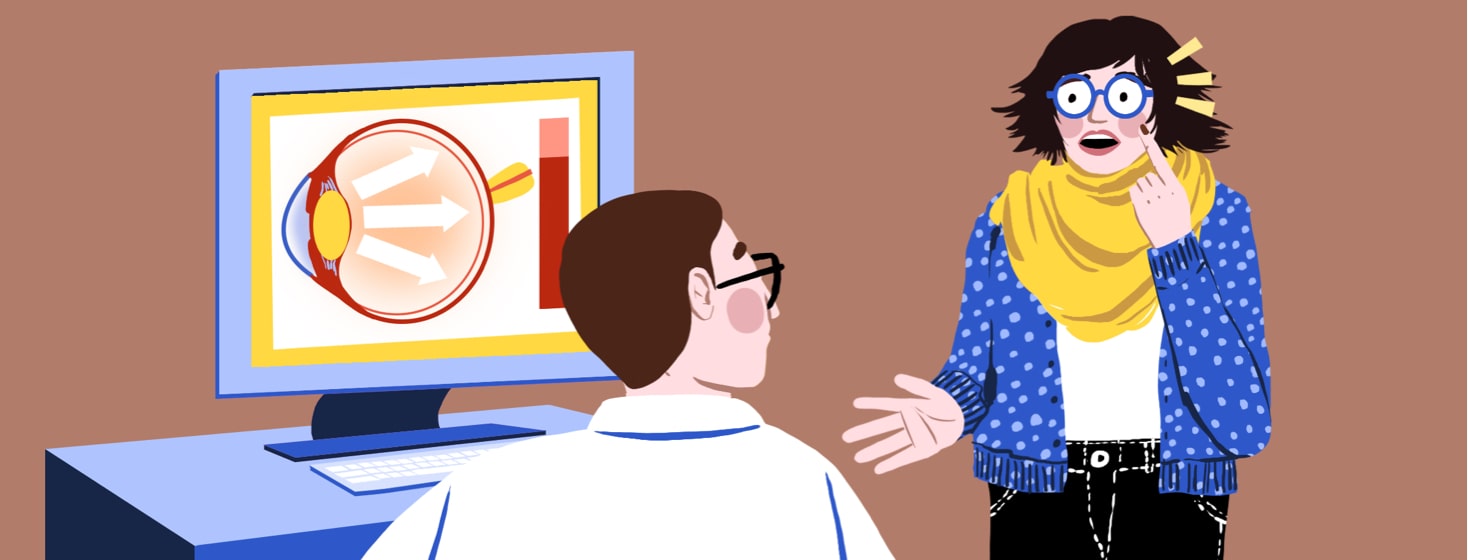Eye Injection Side Effects: My Experience and What You Need to Know
What are the common side effects from eye injections? Ah, yes. Another adventure in age-related macular degeneration-induced legal blindness!
Cloudiness followed by threads
Yesterday I went for my monthly study appointment and to get my second confirmed, intravitreal injection. After the shot, the eye went “blind.” I mean cloudy, opaque. Nothing more than light perception for a few seconds. Then I had this “lace” pattern of gold “threads” and my vision came back. Alrighty, then.
What should we expect from injections?
I know that many of you are reacting like the doctors did: Yea? So? Happens all of the time.
Well, if this happens all of the time, why didn’t anybody WARN me?!?! I was casually aware I had always been asked if I could see a hand waving in front of my face every other time I had been through what I assumed was an injection, but I did not quite expect THAT.
Eye injection side effects
So, this is your official warning: eye injections can cause this scary phenomenon to occur. It is due to a sudden increase in eye pressure. And your official-unofficial reassurance: my vision is back to what it was before they scared the bejesus out of me and took years off my life.
Besides, if the loss of vision like that were permanent, they would not be giving millions of eye shots every year... or being so cavalier about it! Really, guys! Sheez!
Ok. Venting over... maybe.
Why does this happen?
It turns out that an increase in intraocular pressure - affectionally referred to as IOP - can be expected to occur whenever we have eye shots. The 2020 article "Current intravitreal therapy and ocular tension" reports IOP increases are a “known phenomenon” and suggests professional articles on the subject are not hard to find. 1
But what is IOP?
IOP is simply the pressure of the fluid inside the eye. After numbing my eye, the technicians use that tap, tap thing to measure my pressure. They are content when my IOP is what it normally is, 13 or 14. The average IOP is between 12- 22 mm Hg. I guess that means my eye pressure numbers are pretty good.2
Measuring IOP
Oh, and that tap tap thing? It is called an interocular pressure tonometer.
Sometimes I get it into my head to hold my breath when they are reading my eye pressure. That is when my pressure goes up, and I get told to “Breathe!” Holding your breath increases pressure in your chest, elevating venous pressure and ultimately raises venous pressure in the eyes, reducing fluid outflow. Reduced fluid outflow leads to higher eye pressures. 3
And before you ask the question, the answer is “yes.” Elevated blood pressure - whether it is from holding your breath or any other reason - can increase eye pressure. That means my chronically high numbers probably contributed to my little crisis occurring. Lovely.
Understanding pressure increases
From what I have read so far, in general, spikes in eye pressure after injections are temporary. They are researching how much of a chance there may be for pressure increases to become permanent. Chronic high pressures are called glaucoma. So far, there appear to be no definitive studies on that question.
In sum
So, to summarize, be warned that sudden increases in IOP after eye shots can cause a really scary loss of vision for a few seconds. Be reassured that this eye injection side effect is temporary. In addition, high blood pressure is related to higher eye pressures. So… stay calm.
Don't hold your breath
Thus far, eye shots are our best bet. Be sure to carry on with your treatments. Also, it may be a while before we have the answers about the long-term effects of eye shots on eye pressure, so, for goodness sake, don’t hold your breath!


Join the conversation